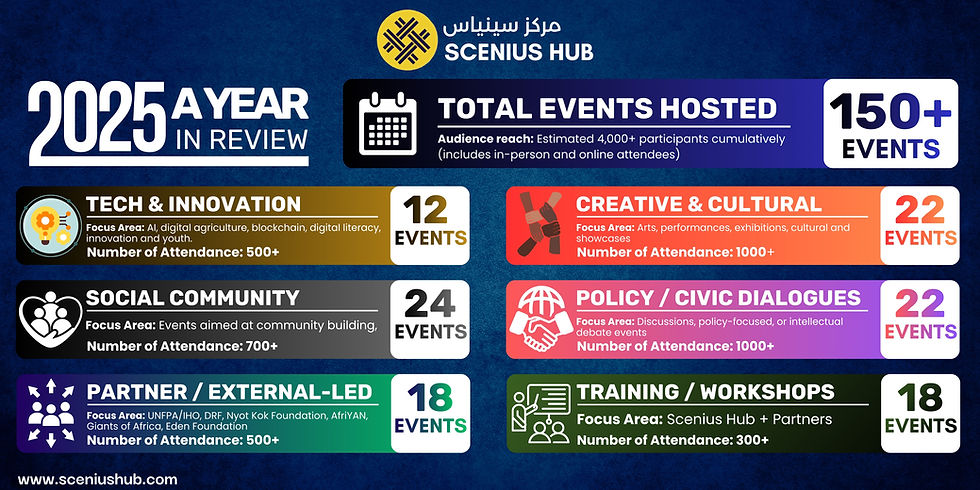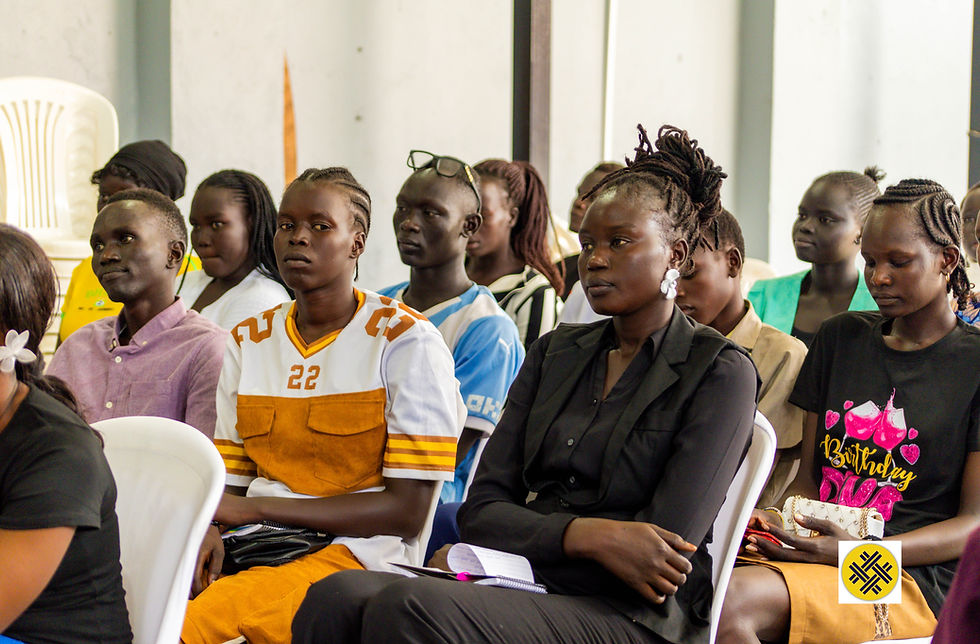Stella Gaitano and the Power of South Sudanese Narratives
- Poni Henry
- Mar 18, 2025
- 3 min read
Updated: Aug 5, 2025

Stella Gaitano, "Morning Star," is a South Sudanese writer and short story writer, born in 1978 in Khartoum. She studied at the University of Khartoum, Faculty of Pharmacy. Stella's writings were first introduced through the book "New Paths" in 2002, and she published a story titled "A Lake the Size of a Papaya Tree." She began her writing career with the short story collection " Withered Flowers " the first edition of which was published in 2004 by Azza Publishing House, and the second edition in 2015 by Rafiqi Printing and Publishing House.
Stella Gaitano's Literary Work
In her collection of short stories, dominated by the theme of displacement, wars, and homelessness, she addressed the injustice of her homeland and its politics. She addressed the alienation of the citizen within her own land, shedding light on the displaced, whose homes were ravaged by wars, forcing them to leave them behind and start over in other lands devoid of a shred of dignity. The collection presents maps of unknown worlds, recounting the effects of war on children who found themselves on the streets without parents, families, or shelter. Thus, with the multitude of wars, stella's pen celebrated death in its various forms.
In 2014, she published another collection of short stories, "The Return," and a children's collection, "The Beautiful and Humble Bird," both with Rafiki Printing and Publishing House. Her first novel, "Edo's Souls," was published by Rafiki Printing and Publishing House in 2018. The novel, about which stella said:
"Edo is a spirit that spoke to me and continues to speak to me from time to time. I spoke about how humans view each other, about human relationships. I opposed the injustice and oppression of women. I whispered to me about the relationship between humans and the creatures around them. I conversed with God about her. I discussed issues of identity, motherhood, and society with simplicity and strength. I refused to force a being to leave their land and leave them suffering from longing and alienation. I followed the fates of the characters with patience and insight, all of which ultimately triumphed."
Stella Gaitano sees writing as an expression of self, to write the stories of characters she chose to breathe through her letters. Stories that fill her with amazement, stories that bring back memories, introduce her to herself, and reconcile with herself. She writes to live in peace and to restore dignity to some of the lives and victims.
Regarding the status of African women, stella said,
"The road ahead for African women is still long, but with the promise of a conscious and active feminist movement working for justice and equality, and striving to lift societies out of the backwardness whose burdens and effects are borne by women, there may soon be a dawn for all African women. Before that, we hope that governments will unapologetically embrace women's issues by reforming laws and policies that enhance women's role in representation and participation in decision-making. Only then will we be liberated and our voices heard with ease, without being silenced and without being forced to emigrate or assume other nationalities."
stella won the Ali Mak Prize for short story competitions and the British PEN Award for her novel "Spirits of Ido" in 2020. She is currently working on her second novel, "Irim," which will soon be published by Hayat Publications.
It is worth noting that stella Gaitano is a South Sudanese writer whose works have been translated into English and German.
About Personality of the Week Series
The Personality of the Week series highlights influential figures who have made a lasting impact in their fields, from literature and activism to innovation, technology and leadership. Each week, we feature a trailblazer whose work and legacy continue to inspire change across the African continent.
Through this series, we aim to celebrate excellence, share powerful stories, and spark meaningful conversations. Join us in exploring the lives of remarkable individuals shaping history, culture, and innovation.
Written by Abraham Makuac













Comments